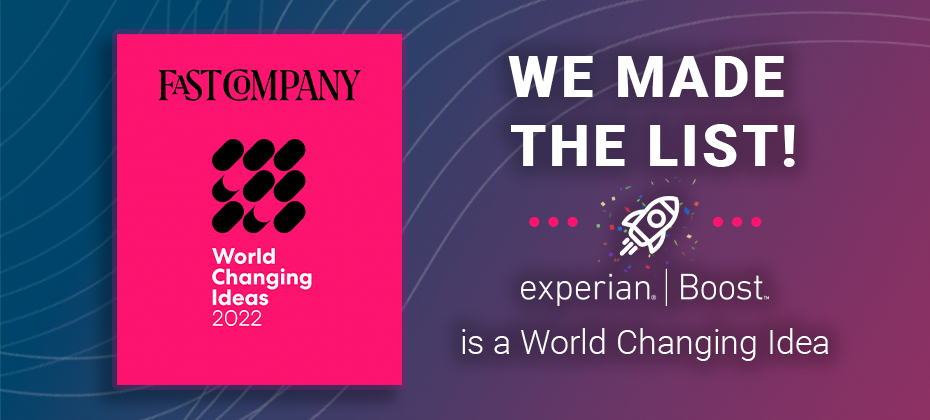All posts by Editor

In a country with more than 68 million people in default, equivalent to a third of the total population, Serasa is holding the biggest debt negotiation event in the history of Brazil. Considered an important part of the credit calendar in the country, especially for defaulters who in Brazil form a universe equivalent to the total population of the United Kingdom or France, the Feirão Serasa Limpa Nome (Clean Name Fair in English) is consolidated as one of the main events in Brazil. What is Feirão Limpa Nome? Feirão Limpa Nome is an event held annually by Serasa and is part of the actions of the largest online debt marketplace in Brazil, Serasa Limpa Nome. The marketplace is a free service that connects more than 200 companies in Brazil with more than 70 million consumers who seek to negotiate their debts in a simple and fast way, without having to leave home and with special conditions (up to 90%), such as discounts and installments. Last year, Serasa Limpa Nome brokered more than 32 million deals, an average of 88,000 per day, 61 per minute. In November, Serasa Limpa Nome promoted the Debt Fair, an online event with discounts of up to 99%. It’s like a “Black Friday” for debts. It also had, for 5 days, a physical event with tents in the main Brazilian cities to help non digitalized people pay their debts. As Experian's Chief Financial Officer Lloyd Pitchford put it: "Limpa Nome is there to help people resolve historic debts, and it’s so humbling to see when we hold our credit fairs, the hundreds and hundreds of thousands of people come out to meet with Experian to try and resolve those debts in a way that’s supportable for them but also meets the needs of their creditors." The records and innovations of the 2022 edition With negotiations through Serasa's digital channels taking place in November December , the 28th edition of the event has provided approximately 5.5 million so far. The goal is to achieve 7 million deals by the end of the event, thus closing the largest of all editions ever held. The goal is to surpass the 2021 Fair, which granted more than BRL 10 billion in discounts, enabled 5.8 million deals and benefited 4 million people. The numbers of the Feirão 2022 will be record-setting. We had a record number of participating companies – 267 – including banks, securitization companies (companies that buy debts), finance companies, retail, telecommunications companies, universities, and others. The number of partner companies are growing even more throughout the event. For the first time, Serasa made it possible to renegotiate basic debts, such as energy and solid waste tax. This year it was still a small offer, but already symbolic for what this debt segment represents in Brazil (27% of the total). The volume of offers available is estimated at more than 250 million, with average discounts of 70%. For the first time, Feirão Limpa Nome allowed payment with Pix, currently the main means of instant electronic payment in the country. Payments with Pix allowed, also for the first time, Serasa to offer the possibility of instantly writing off the negative debt - that is, the indebted person could have their name immediately removed from the credit bureaus, not having to wait longer for up to five business days, as provided by Brazilian legislation. For the first time, we made available the “Extrato Serasa” (Serasa Statement), a document in which consumers can prove that they no longer have debts in the company's register. Volunteers and emotion Feirão Limpa Nome is only possible because Experian had an impressive mobilization of its employees and contractors. In addition to these, there was an army of more than 400 volunteers from all over Experian Brazil, who enlisted for the purpose of contributing to a better country. The numbers were impressive and the final economic results were significant, but the most important are the stories of simple people that mark the days of physical fair. There were thousands of cases where users cried after the negotiation was done. They cried with relief at the end of a sacrifice and the resumption of a healthier economic life. Consumers who benefit from this This was the case, in the last fair, of Vagner da Silva, who managed to resolve a pending issue that had plagued him for 21 years, when his two children were born and he had to resort to overdraft and a bank loan. He left the Feirão Serasa Limpa Nome, in São Paulo, with a sense of relief. “For half my life my family and I suffered from this drama, a real knife to the head,” said Vagner, now 42. “Finally, we are free of this burden, we have a clean name”. On the same occasion, the seamstress Terezinha de Jesus cried after getting a 90% discount and paying off a debt made by her ex-husband, in her document, when buying wheels for her car in the early 2000s. “My family likes the right things and I want, when God calls me, to be free, with my suitcase packed”, she told the main Brazilian News Portal, Grupo Globo's G1, in a report that touched thousands of readers. What’s next We continue our journey to help consuemrs all over the world, and here in Brazil. Feirão Limpa Nome is just one of many programs Experian manages in the countries where it operates. For more information on ways we are working to help consumers, please visit our United for Financial Health page here.

We’re thrilled to announce that Experian North America has been recognized as a Top Workplace by the Orange County Register for the 10th consecutive year, with an additional “Excellence Award” for our work / life flexibility. This honor is a testament to our innovative employee culture, and keeping connected, engaged and energized as a hybrid workforce. This Orange County Register award recognition is based on the results of confidential employee surveys that assess the performance of hundreds of successful companies throughout our community. We recognize that our employees are the driving force behind our decade-long achievement as a Top Workplace. Our talented team is dedicated to both their own growth and pushing us forward, and we’re grateful for all they do to make Experian such a great place to work. Employee collaboration from our hackathons and company-wide product overviews have sparked remarkable innovations, such as Experian Go and Experian Boost. These products are especially helpful to members of diverse backgrounds and low-income households. Our Mental Health First-Aiders program is another example of employees coming together to support each other. Our commitment to creating a supportive, purpose-driven culture is reflected in multiple awards from authoritative sources such as Great Places to Work. Not only was Experian listed among the "Best Workplaces for Parents," we’re also honored to be included on their list of "Best Workplaces for Millennials." Additionally, we’re passionate about giving back to the communities in which we work and live. We take pride in our company’s numerous contributions to organizations focused on the well-being of people from a diverse array of backgrounds. From creating the Experian Volunteer Leadership Network to our financial support of community organizations such as Ascend, National Urban league, HomeFree-USA and the Pathways Forward Initiative, we’re dedicated to helping people in need. We believe all these factors have led to our success as a company and a desirable place for people to build thriving careers. We’re honored that leading organizations like the Orange County Register and Great Places to Work recognize our efforts to make the world a better place. We want to make sure that we continue to innovate; that our products and services are first-best-and-only in their respective industries; and that we take very good care of our constituents.

Bloor Research recently named Experian a Champion in the latest Data Quality Market Update 2022. Bloor’s Market Update specifically provides individuals with a technology update and ranking of vendors based on their products and progress in the market. Experian was the only vendor placed in the Champion category. Data quality is the foundation for any data-driven organization. However, many organizations still struggle to achieve the needed quality data necessary to feed critical initiatives. In our most recent research report, we discovered that 85% of businesses believe poor quality contact data for customers negatively impacts their operational processes and efficiency. To solve these challenges, data quality solutions continue to evolve. Leveraging trustworthy data equips organizations with the power to make their data actionable and fit for a purpose. Our research also showed: 89% say that implementing data quality best practices has improved their business agility 87% believe that data quality is fundamental to the core of business operations 91% say investing in data quality has positively impacted business growth In effect, this empowers business leaders to make better and faster decisions when outlining key operational strategies and initiatives. Since three quarters of businesses who have improved their data quality in the last year say they have exceeded their goals in some manner, we find that organizations that emphasize data maturity are more likely to experience success. Experian has a long history in the data quality space, starting with our address validation solutions. However, as data usage has evolved, so have our solutions. We incorporate cutting edge technology paired with an easy-to-use interface that allows individuals at all levels of the business to better understand the quality of their data and improve this important asset. A high degree of automation and precision will be required as businesses tackle today’s challenges related to data quality. At Experian, the overarching goal is to help clients maximize their potential with the power and confidence supplied by superior quality data—the cornerstone of success in today’s digital-forward realm of business operations. Explore our data quality solutions today to find out for yourself what makes us data quality experts. Click here to start your free trial.

Consumers generate hundreds, if not thousands, of digital interactions every day when they do things like shop on the internet, play games, manage their finances or stream entertainment. As businesses look to differentiate their brands and create positive consumer experiences, they need to reconcile these data points. Proper reconciliation of identity leads to insightful data that helps augment the way brands market to consumers, manage risk, and deliver secure, personalized experiences. Fulfilling the promise of identity can be a challenge, though, given the massive volumes of data that these consumer interactions generate, and the need to ensure privacy-compliant use. To help companies meet this challenge, Experian introduced an integrated suite of identity solutions, products and services called Experian Identity. It combines Experian’s sophisticated information technology systems and vast accumulation of consumer data to enable businesses to engage with consumers on a more perceptive, personalized basis. This recent Global News Blog entry addresses this topic well. Experian Identity is an ideal choice for companies that need identity resolution and fraud management solutions to further strengthen their customer relationships. One example of the innovative use of identity data is how it can give people with limited-to-no credit history access to a variety of useful financial instruments. By incorporating expanded data sources that contain identity information, such as rent, utilities, telecom, and video streaming services, as well as buy now, pay later data into credit reports, consumers who are underrepresented in the current credit reporting system can provide a more comprehensive view into their ability and willingness to repay outstanding debt. Lastly, Experian Identity is laser-focused on compliance for consumer consent and control around identity. A recent advertorial in the news outlet AXIOS offers more background on how businesses can use identity data to stay relevant with their target audiences and create a positive and safe consumer experience. Click here to read more. For more information on how Experian Identity helps optimize identity solutions, visit www.experian.com/identity-solutions. To learn how making identities personal builds trust and helps organizations create improved experiences for consumers and businesses, download the Making Identities Personal white paper.

Two of Experian’s core values – innovation and financial inclusion – are on full display with Experian Boost™ being selected for Fast Company’s 2022 World Changing Ideas Awards, which celebrates the “broadest ideas … that have the potential to affect true systems change.” Experian Boost is a first-of-its-kind service designed to help consumers improve their credit profile and thrive financially. Nearly 9 million people have connected the service to report their on-time utility, telecom, and video streaming service payments. The service tackles inequity and exclusion from the credit economy by enabling consumers to add positive payment history that reinforces their personal financial reliability directly into their Experian credit file, which can potentially boost their credit score instantly. At Experian, we continually focus on expanding credit to underserved communities. Most recently we introduced Experian Go™, a brand-new program that can potentially help the nearly 50 million people in the United States who have a nonexistent or limited credit history. This Fast Company recognition also reflects our purpose and innovative culture focused on creating products and solutions that help consumers thrive, including Experian Boost in the UK and Serasa’s Score Turbo in Brazil. Every day at Experian we are investing in new technologies, talented employees, and innovation to help consumers and our clients maximize every opportunity we have to offer.

Last year, while still in the grip of the effects of the pandemic, Experian North America continued to reinforce our core purpose and People First approach through creating a workplace culture of belonging, employee wellness and personal and professional growth. It’s especially rewarding that this commitment, along with our financial planning and consumer education resources, were highlighted in this year’s Fortune 100 Best Companies to Work For award recognition. For the third year in a row, Experian North America was named to the prestigious national list that honors the “100 Best companies that adapted to massive changes in the workplace by prioritizing employee well-being, inclusion, purpose, listening and care wherever their employees are.” To determine this year’s 100 Best list, Great Place to Work®, America’s largest ongoing annual workforce study, surveyed more than 870,000 employees and gathered data from companies representing more than 6.1 million employees. The survey enables employees to share confidential feedback about their organization’s culture and the employee experience. Great Place to Work cited that “Experian has expanded benefits to include fertility, surrogacy, and adoption coverage and enhanced its higher education financial planning resources. It’s also tackling workplace equity from the very start of the hiring process with an in-house tool called Lingo that identifies gender-biased language in job descriptions.” In addition, “Experian began to hold conferences for employees to discuss their personal struggles during the pandemic. Since then, the company has continued to improve wellness initiatives, while staying committed to flexibility around employee schedules.” “At Experian we’re especially proud of our purpose-driven culture, where all our people play a role in making a positive impact in the day-to-day lives of the consumers, clients and communities we serve. This includes taking care of each other, celebrating our individual differences, and delivering on our purpose to create a better tomorrow for people everywhere,” said Jennifer Schulz, Chief Executive Officer of Experian North America. “This recognition from Fortune reflects the very best Experian offers to all those we help, and I couldn’t be prouder of our people and the work we’re doing.” At Experian, we believe bringing together unique experiences, diverse backgrounds and individual differences creates a dynamic, innovative and inspiring workplace — one reflective of the clients and communities we serve around the globe. This is why it’s such an honor to be recognized alongside other outstanding brands on the Best 100 list that prioritize their employees. This recognition continues the momentum we’ve built in recent months with other industry accolades and awards. In February, Experian North America was named a “Best Place to Work for LGBTQ Equality” for the fourth year in a row in the Human Rights Campaign Foundation’s Corporate Equality Index 2022, receiving a perfect score in the foundation’s evaluation. Last year, Experian North America was named to the Fortune Best Workplaces for Women™ 2021 among large organizations and 100 Best Large Workplaces for Millennials. In addition, we were ranked the #1 Top Workplace in 2021 by the Orange County Register for the second consecutive year.

For the past several years, we’ve been on a journey to improve financial access for millions of people around the world. We’ve made it our job to help consumers get the best financial outcomes. This focus on consumers defines us and informs everything we do. In 2019, we reshaped how consumers access credit with Experian Boost™. Since then, nearly 9 million consumers have connected to the product. While we are proud of what we have and continue to accomplish with Experian Boost, we know there is more to be done to ensure more consumers can access fair and affordable credit. Improving outcomes for underserved consumers When credit is used responsibly, it can create new opportunities from getting a college degree, buying a car or home and starting or expanding a business. These are milestones that help people establish careers, build wealth and ultimately achieve greater financial freedom. Yet, there are millions of consumers who are unable to participate in the mainstream financial ecosystem today because they don’t have a financial identity. Without an established credit history, these consumers struggle to qualify for everything from an auto loan to a mortgage and even an apartment or employment. This problem more frequently impacts communities of color with 28 percent of all Black and 26 percent of all Hispanic consumers currently unscoreable or credit invisible. Increasing financial inclusion depends on creating opportunities for underrepresented consumers to succeed. And this starts with ensuring all consumers have a financial identity. Bringing financial power to all with Experian Go The challenge is many consumers who are not in the credit ecosystem today are unsure where to start. Today, we reached a pivotal and exciting milestone in our commitment to consumers with the launch of Experian Go™. This new program opens the front door to the financial ecosystem for millions of consumers by helping them establish their financial identity and move from credit invisible to scoreable. Within minutes, credit invisibles can have an authenticated Experian credit report, tradelines and a credit history by using Experian Boost™[1], and instant access to financial offers through Experian Go. In fact, early analysis shows 91 percent of consumers with no credit history who connect to Experian Boost, a free feature that allows users to contribute their on-time cell phone, video streaming service, internet, and utility payments directly to their Experian credit report, can become scoreable in minutes with an average starting near-prime FICO® Score of 665[2]. Throughout the experience, we’ll provide ongoing credit education and access to tools like Experian Boost™ to make it easy for consumers to learn how to use and responsibly grow their credit histories. Until now, our industry has struggled to verify the identity of credit invisibles. Over the last several years, we’ve introduced new identity verification technologies to our toolbox. With Experian Go, we’re leveraging these technologies to verify a credit invisible’s identity and get them in the front door to start building credit. No other credit bureau or organization is doing this today. During our pilot, we helped more than 15,000 consumers establish their credit history. This is a great start. Now that Experian Go has launched, I look forward to helping millions more consumers get the credit they deserve. To learn more about Experian Go, visit www.experian.com/go. [1] Results may vary. Some may not see improved scores or approval odds. Not all lenders use Experian credit files, and not all lenders use scores impacted by Experian Boost. [2] Experian analysis based on an anonymized and statistically relevant sample of consumer credit reports with only Experian Boost tradelines included and FICO® Scores. December 2021.

It’s a privilege to be recognized for a cause that’s important to so many of us at Experian. I am honored to be awarded a bronze Stevie® Award in the “Women Helping Women – Business” category for supporting women in Decision Analytics (DA) and overseeing our employee resource groups across DA. The award specifically calls out our long-standing Accelerated Development Program (ADP), which identifies and mentors women business leaders within our organization The Stevie Award trophy is one of the world's most coveted business prizes, representing more than 60 countries. The awards have been given to small, medium and large businesses for an array of categories since 2002. In 2018, HR Director Richard Teague and I helped launch ADP, which has identified 44 mid-career, high-potential women on the Global Decision Analytics team in a leadership training program. Around half of the women who participate have been promoted within two years. The ADP program also complements our DEI initiatives, which includes our five employee resource groups that have played a valuable connecting and our engagement our team members during both the pandemic and personal challenges. If you would like to find out more about any of the GDA DEI networks, including how you can get involved, please contact the relevant network lead: Mental Health – Chris Fletcher Disability and Neurodiversity – David Bernard LGBTQ+ - David Gallihawk Gender Network – Marika Vilen or Jen Cosgrove Race and Ethnicity – Shri Santhanam

An industry’s greatest innovators are successful not only because they deliver superior products in the present, but also – and perhaps more importantly – because they continuously solidify their place in the future through a drive to create a better tomorrow that encourages modernization and disruption. With this approach, Experian has been named Most Innovative Company of the Year in the 2021 11th Annual Best in Biz Awards. Over 700 companies entered, and winners of this prestigious honor were chosen by a small group of prominent editors and reporters from top-tier publications like Associated Press, Forbes, CNET, and Wall Street Journal. In their day-to-day reporting, these judges hear about and cover companies which are on the forefront of innovation. Over the last year, Experian has focused on helping consumers and financial institutions with a wide range of challenges. This includes opening up credit to underserved communities, adapting to changing consumer expectations, addressing the growing threat from fraud, and becoming a more agile technology provider in an ever-changing market. We are truly honored to be recognized as Most Innovative Company of the Year by the Best in Biz Awards. Experian embraces a culture of discovery that enables us to grow and evolve while remaining at the forefront of innovation. Of course, the key is to never stop questioning, evolving, and innovating. And we won’t.